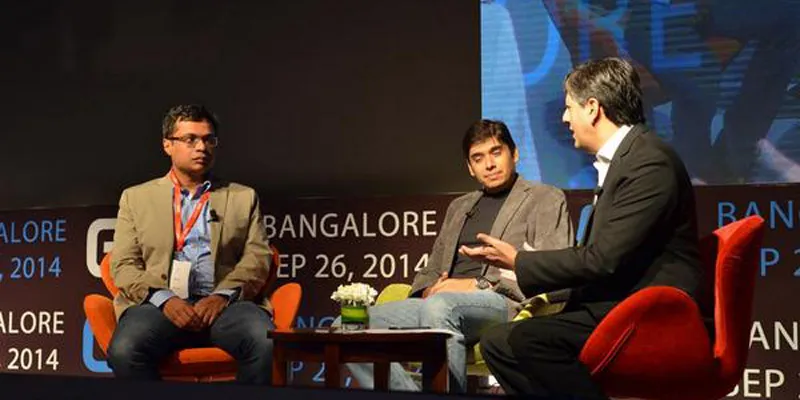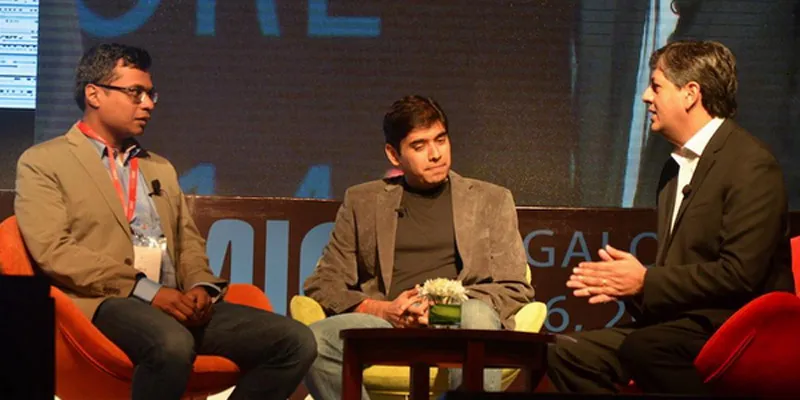Make apps in India should be a part of the “Make in India” campaign
Developing indigenous applications on mobile phones and making apps in India for Indians should be the next step for mobile companies and app developers, top executives said at an industry meet.
At GWC’s Global Mobile Industry Conference (GMIC) in Bangalore, Flipkart’s Sachin Bansal and InMobi’s Naveen Tiwari spoke about the importance for Indian developers to focus on Indian mobile users, one of the fastest growing consumer markets in the world.

Their comment couldn’t have been better timed. A day earlier, Prime Minister Narendra Modi unveiled a “Make in India” campaign, which aims to turn the nation into a global manufacturing hub.
Sachin Bansal, founder-CEO of Flipkart, said: “Because of our history as a country in terms of IT software, our strengths as a software powerhouse that we have built… in the “Make in India” campaign there should also be “Make apps in India”. That’s going to generate so much value that nothing can match it, we actually have a great shot at getting it right.”
Modi had outlined plans to cut red tape, improve infrastructure and make it easier to develop entrepreneurship in India.
“I would tell Indians in the U.S. to come back to India. Right now is the right time to come back to India and create a lot of value,” Sachin said, responding to a question from panel moderator and NDTV CEO Vikram Chandra on what Modi, who is in the U.S., should tell Indians there.
The opportunity in India is higher than other markets because of the speed of penetration of mobile technology, they said. For instance, about30 per cent of global media consumption happens on mobile, while in India that number is as high as 50-60 per cent.

However, investment in building technology is also important, they said.
“I fundamentally believe that over the next five years a lot of challenges in the country will be sorted out through products, technology products. It’ll vary from entertainment to education to healthcare and it can go all the way through,” said Naveen Tiwari, CEO of InMobi.
“The question is, will we as Indians, be solving it ourselves? Or will we be importing the solutions into India and then solving it. The difference in my mind is this: if we were to import, five years down the line we’ll be importing roughly $500 billion worth of software products a year.
“Or we can get our entrepreneurs to create $500 billion worth of stuff for us, keep that capital within the country and create wealth and start off an entrepreneurial cycle which India needs to see, which would be of a magnitude that has never been seen before. We have that opportunity and we need to do a few things for that. Otherwise, the problems will get sorted out, we won’t be the beneficiaries of it,” he added.
Sachin and Naveen also spoke about the possibilities of solving India’s social problems using mobile technology.
“There is no other way to solve a lot of problems in society without mobile,” said Naveen.
“In fact, the lack of road infrastructure will help us to innovate like nothing we’ve seen before,” he added.







